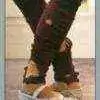-
Welcome to Celiac.com!
You have found your celiac tribe! Join us and ask questions in our forum, share your story, and connect with others.
-
Celiac.com Sponsor (A1):
Celiac.com Sponsor (A1-M):
-
Get Celiac.com Updates:Support Our Content
Gluten Intolerence And Thyroid Problems
-
Get Celiac.com Updates:Support Celiac.com:
-
Celiac.com Sponsor (A17):
Celiac.com Sponsor (A17):
Celiac.com Sponsors (A17-M):
-
Recent Activity
-
- Russ H replied to Charlie1946's topic in Related Issues & Disorders15
Severe severe mouth pain
Hi Charlie, You sound like you have been having a rough time of it. Coeliac disease can cause a multitude of skin, mouth and throat problems. Mouth ulcers and enamel defects are well known but other oral conditions are also more common in people with coeliac disease: burning tongue, inflamed and swollen tongue, difficulty swallowing, redness and crusting... -
- cristiana replied to Charlie1946's topic in Related Issues & Disorders15
Severe severe mouth pain
Hi @Charlie1946 You are very welcome. I agree wholeheartedly with @knitty kitty: "I wish doctors would check for nutritional deficiencies and gastrointestinal issues before prescribing antidepressants." I had a type of tingling/sometimes pain in my cheek about 2 years after my diagnosis. I noticed it after standing in cold wind, affecting... -
- Scott Adams replied to lmemsm's topic in Gluten-Free Recipes & Cooking Tips12
gluten free cookie recipes
We just added a ton of new recipes here: https://www.celiac.com/celiac-disease/gluten-free-recipes/gluten-free-dessert-recipes-pastries-cakes-cookies-etc/gluten-free-cookie-recipes/ -
- Florence Lillian replied to xxnonamexx's topic in Post Diagnosis, Recovery & Treatment of Celiac Disease1
Fermented foods, Kefir, Kombucha?
I have had celiac for many years and still had terrible digestion. I cook from scratch, never eat anything with gluten ( A Gut that needs special attention seems to affect many who suffer from celiac) . I made my own Kombucha, it helped my Gut much more than the yogurt I made but I still had issues. Water Kefir did nothing. As a last resort I made MILK Kefir... -
- Charlie1946 replied to Charlie1946's topic in Related Issues & Disorders15
Severe severe mouth pain
@cristiana Hi, thank you so much, I will look into those books for sure! And get bloodwork at my next appointment. I have never been told I have TMJ, but I have seen information on it and the nerve issue while googling this devil plague in my mouth. Thank you so much for the advice!
-





Recommended Posts
Archived
This topic is now archived and is closed to further replies.